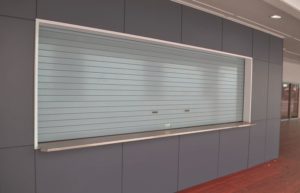Can you be too old to fix crooked teeth?

Ask any dentist and they’ll say no, but there’s a lot more to it, and it’s not just a yes / no thing. Lots of other factors come into play. For example, why are your teeth crooked? In the past we assumed it’s because we didn’t have access to health care as youngsters. Dental treatment is fairly expensive, and many insurance plans don’t cater to your teeth. Also, dentists have a phobia-inducing reputation, so we mostly avoid them.
For many adults, the first time they visited a dentist was when they experienced wisdom tooth impaction. At that point, your teeth are already crooked, and you’ve accumulated a lifetime of dental problems. So any good dentist looks at the impaction, but they also point out all the other things that are wrong with your dental health. And as an adult who stayed away from dentists for this very reason … itonly reinforces your fear.
From your perspective, you avoided the dentist because the instruments are scary, treatment really hurts, and you fork out a lot of cash. Visiting for dental surgery does nothing to assuage that. (You often need surgery to correct impaction, because your dentist has to anaesthetise you, pull back the fleshy gum tissue, dig into your jaw bone, split it open, and pull out the mis-positioned tooth.) So any other problem the dentist mentions feels like more money and more pain. You’re unlikely to come back.
Plan for your teeth
On the other hand, if you have a good dental insurance plan, or if you’ve invested in your smile, then you have more options. You could get braces, or you could take out the crooked teeth and replace them with titanium implants. Each of these options has contra-indications beyond cost, and the corrective measures taken on your teeth will really depend on what warped them in the first place.
If your teeth are twisted on account of an injury, they can easily be extracted and replaced with implants. For many people though, their dental formula arose from a poor diet in childhood. Dr. Steven Lin theorises that all our teeth problems are linked to under-developed jaw bones. Because the jaw is too small, your teeth are squashed as they erupt, making them crooked. And by the time your molars appear, they’re forced to dig into your gums, hence impaction and extraction.
Modern dentistry can repair these types of problems if they’re caught early enough. For example, laser dentistry is recommended for soft tissue repair, so if you catch your wisdom tooth on its way out, your dentist can use lasers to pull back or remove the offending gum tissue, leaving your wisdom teeth room to erupt in a less painful manner. Also, a childhood diet rich in vitamins A, D, and K – as well as foods with bite (celery, carrots, bony meat) will enable your jaw to grow adequately. This allows your teeth to stay straight and pretty.
Braces vs implants
As for the rest of your crooked teeth, specialised braces can take care of that. Conventional braces are worn by teens and tweens. Their teeth are still growing, so their ‘railway lines’ push them into place, corralling new ones as they arrive. These braces are worn for two years or more, squeezing your smile into place. They don’t work as well for older patients, because their teeth have stopped growing, so all the metal in the world won’t twist them into place. There’s an alternative though – invisible braces. They sound magic, and in a way, they are.
For one thing, you can barely see them except when there’s a camera flash (#selfie) – and in such cases, your invisibles appear as an extra glimmer in your grin – the flash bounces off them, adding sparkle to your smile. They’re easier to look after than traditional braces, because you can remove them when you want to eat, brush, or kiss. You should keep them in when you sleep though, that’s when they do their best work because growth mostly happens during sleep. Invisible braces (sometimes called aligners) work faster than traditional ones.
You only have to keep them in for 6 months to a year, depending on the condition of your teeth and the recommendation of your dentist. And while regular braces are preferred before your permanent teeth come in, invisible braces are more effective on mature teeth. They’re advised for use after the age of 16 and all the way into adulthood, so they’re ideal for elderly patients. Of course if you’re unwilling to swap your aligners every two weeks, implants are good too. Their titanium base is fused to your jaw over a period of months, then porcelain crowns are layered on top, so they look like natural, sparkling, straight, stain-proof teeth.





